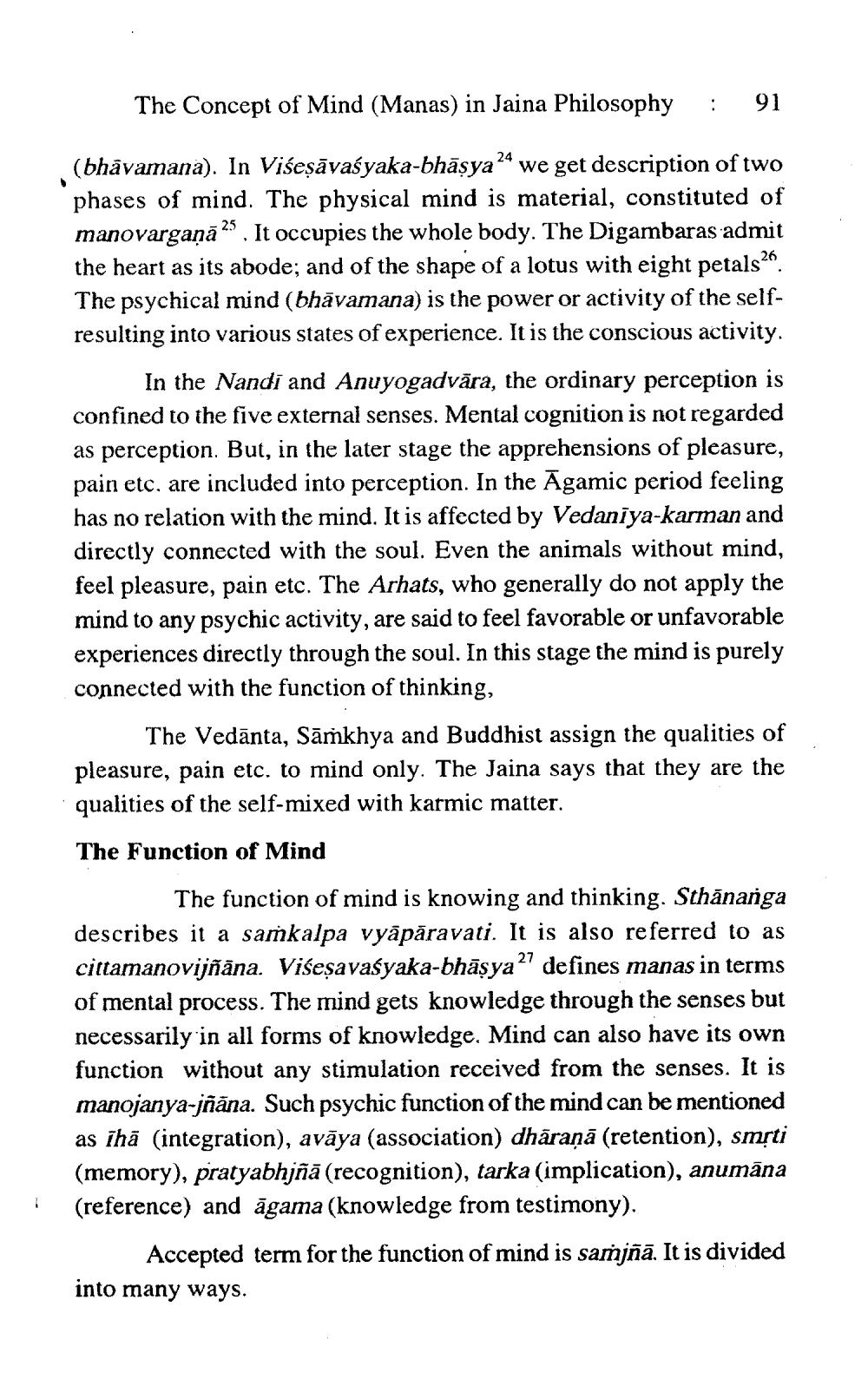________________
The Concept of Mind (Manas) in Jaina Philosophy : 91
(bhavamana). In Viseṣāvasyaka-bhāṣya24 we get description of two phases of mind. The physical mind is material, constituted of manovargaṇā 25. It occupies the whole body. The Digambaras admit the heart as its abode; and of the shape of a lotus with eight petals26. The psychical mind (bhāvamana) is the power or activity of the selfresulting into various states of experience. It is the conscious activity.
In the Nandi and Anuyogadvāra, the ordinary perception is confined to the five external senses. Mental cognition is not regarded as perception. But, in the later stage the apprehensions of pleasure, pain etc. are included into perception. In the Agamic period feeling has no relation with the mind. It is affected by Vedaniya-karman and directly connected with the soul. Even the animals without mind, feel pleasure, pain etc. The Arhats, who generally do not apply the mind to any psychic activity, are said to feel favorable or unfavorable experiences directly through the soul. In this stage the mind is purely connected with the function of thinking,
The Vedanta, Samkhya and Buddhist assign the qualities of pleasure, pain etc. to mind only. The Jaina says that they are the qualities of the self-mixed with karmic matter.
The Function of Mind
The function of mind is knowing and thinking. Sthānanga describes it a samkalpa vyāpāravati. It is also referred to as cittamanovijñāna. Viseṣavasyaka-bhāṣya27 defines manas in terms of mental process. The mind gets knowledge through the senses but necessarily in all forms of knowledge. Mind can also have its own function without any stimulation received from the senses. It is manojanya-jñāna. Such psychic function of the mind can be mentioned as īḥā (integration), avāya (association) dhāraṇā (retention), smṛti (memory), pratyabhjñā (recognition), tarka (implication), anumāna (reference) and agama (knowledge from testimony).
Accepted term for the function of mind is samjñā. It is divided into many ways.




